
What is OCaml?
Developed for more than 20 years at Inria by a group of leading researchers
It's used in environments where a single mistake can cost millions and speed matters
It has an advanced type system that helps catch your mistakes without getting in your way
Strength
A powerful type system
User-definable algebraic data types and pattern-matching
Automatic memory management
Separate compilation of standalone applications



























https://try.ocamlpro.com/
let bidning
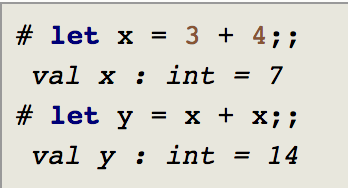
Note that there are some constraints on what identifiers can be used for variable names.
Punctuation is excluded, except for _ and ', and variables must start with a lowercase letter or an underscore.
The let syntax can also be used to define a function
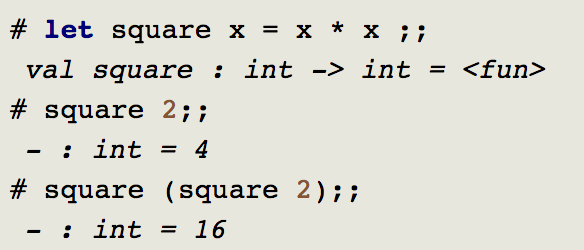

Parametric polymorphism
Tuples
an ordered collection of values that can each be of a different type

Lists

hold any number of items of the same type
Some basic operations with List




Recursive list function
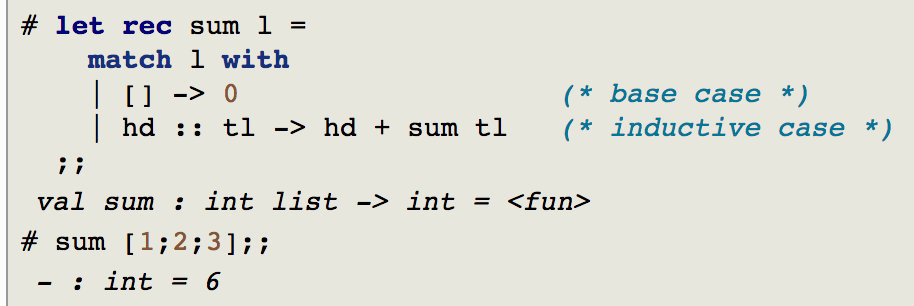
Removing sequential duplicates
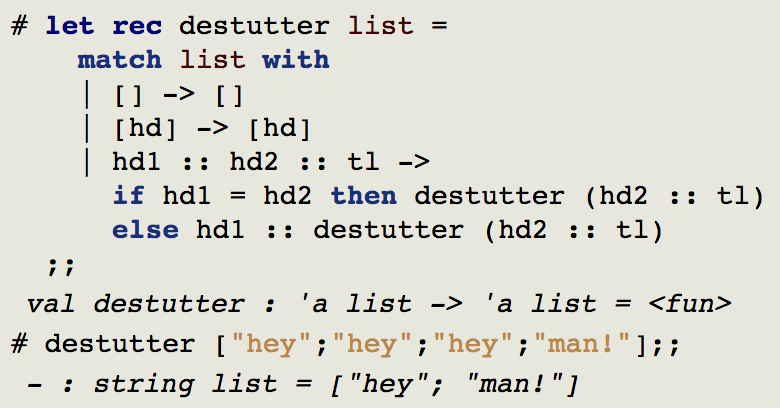
Options

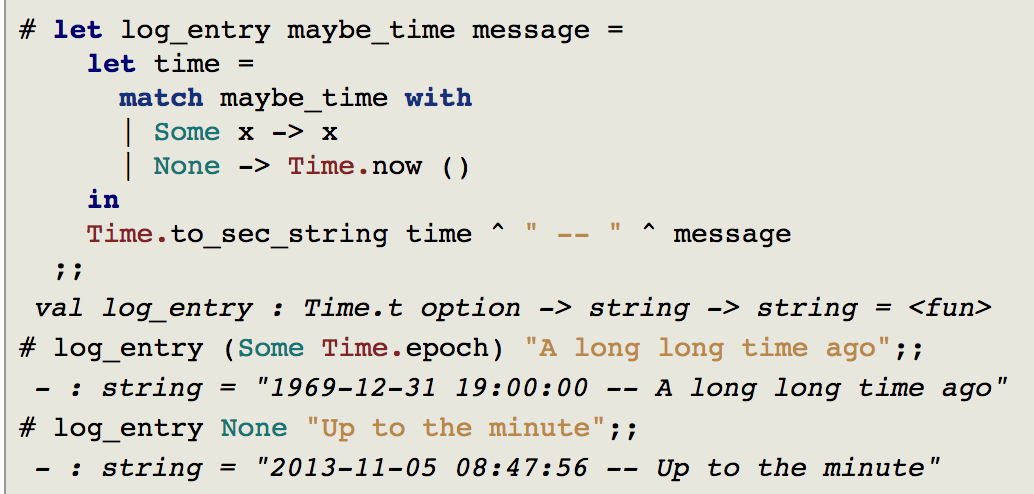
Nesting let with in
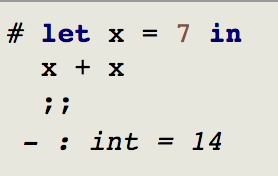
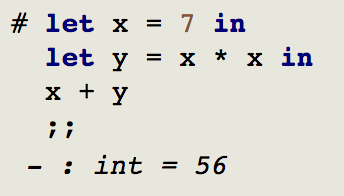
Records


field punning

Type

Variant type
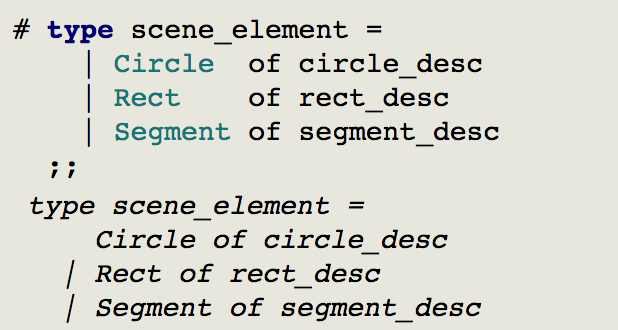
Example of using variant type

Arrays
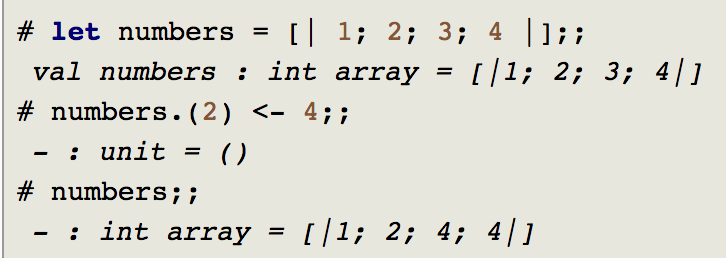
Mutable Record Fields
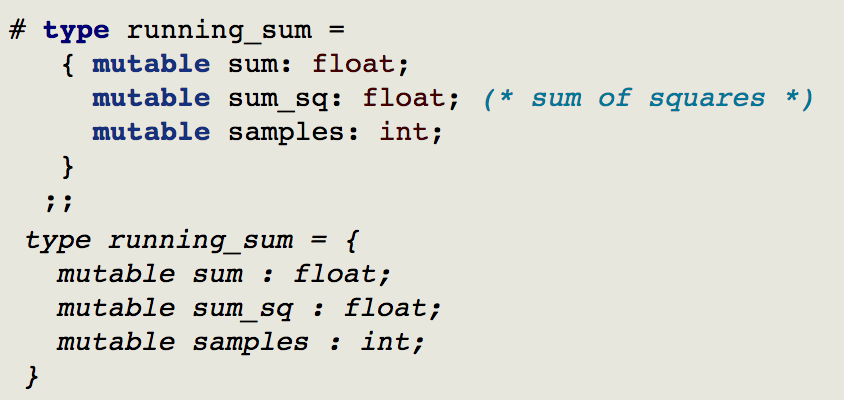
Create/Update Mutable Record

Text
Refs
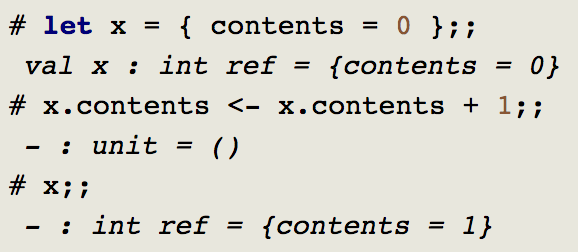
Handful functions to work with Refs

How to implement Ref by yourself
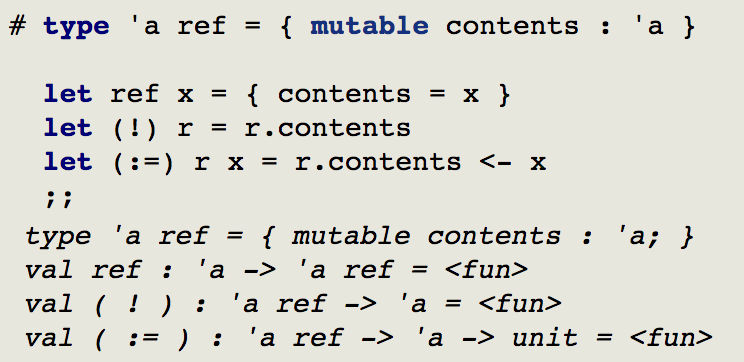
For loop
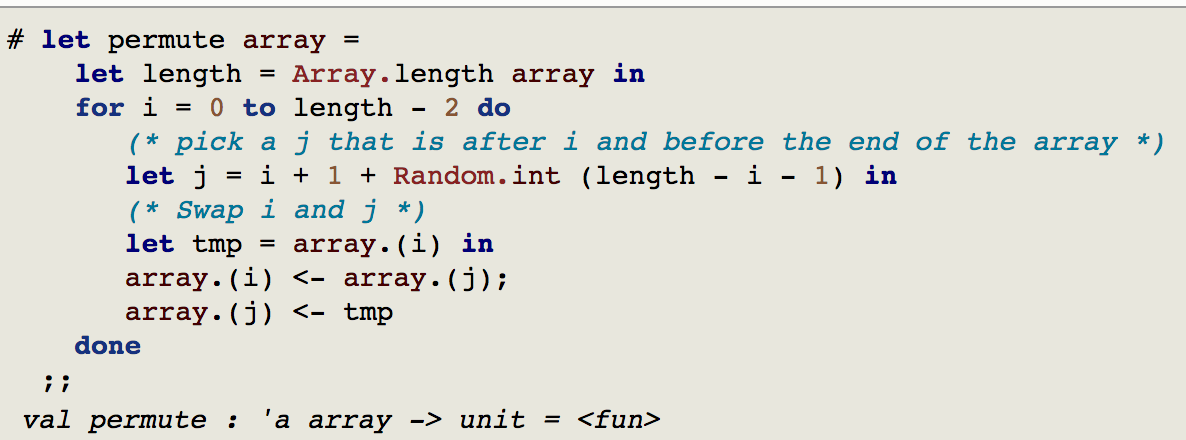
While loop
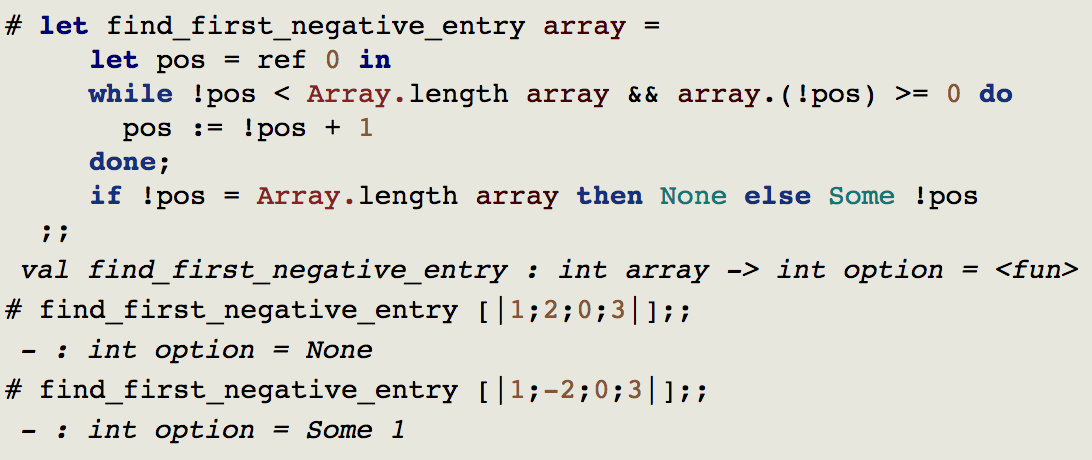
Where Is the Main Function?
OCaml doesn't have a unique main function
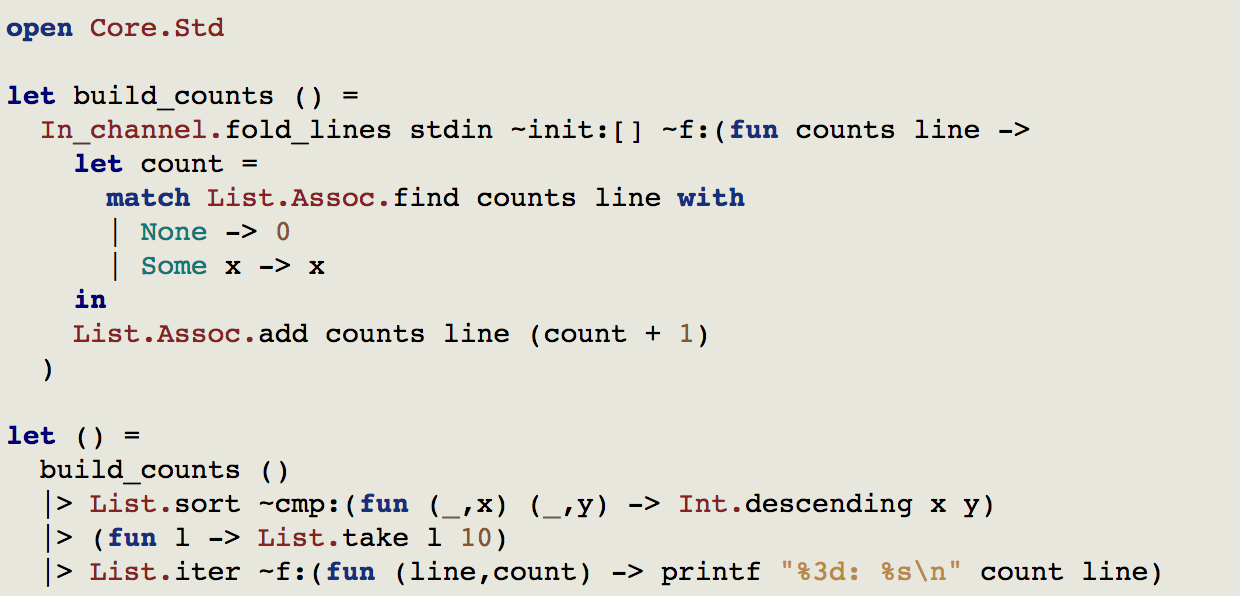
Modules
In OCaml file is a module
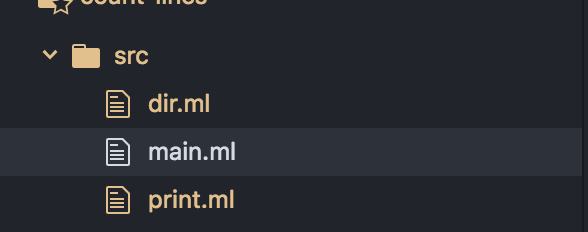
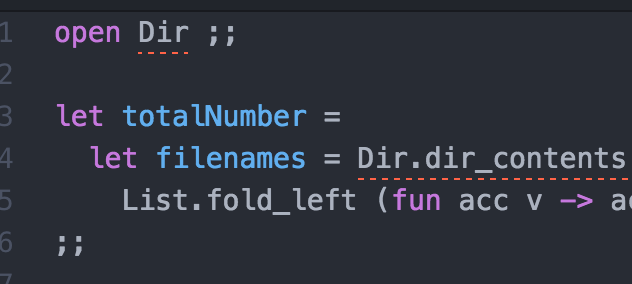
Module Interfaces
A module defined by a file filename.ml can be constrained by a signature placed in a file called filename.mli.

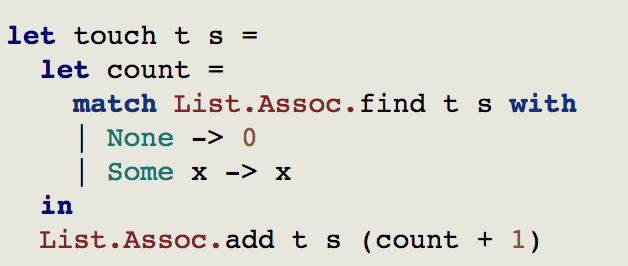
Sub Modules
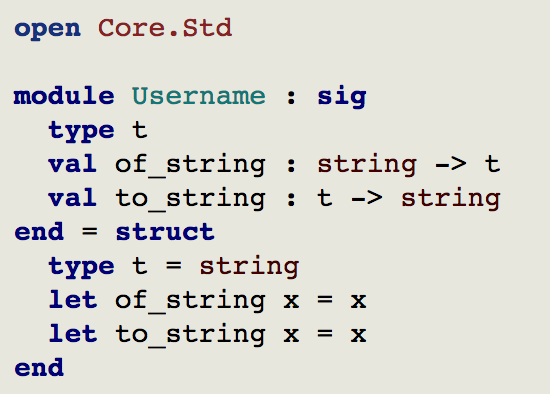
Including modules

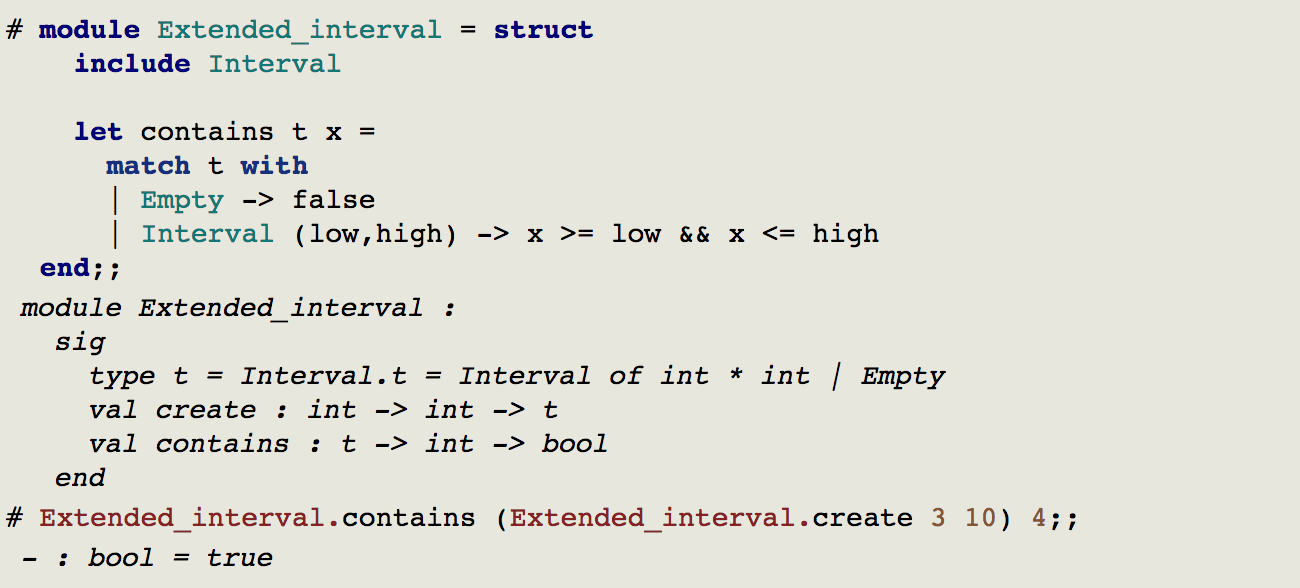
Bytecode Versus Native Code
Bytecode is interpreted by a virtual machine
Native code can be run only on a specific OS and processor architecture
Configuring environment for OCaml
brew install ocaml
brew install opam
opam install ocamlbuild
opam switch <version>
opam switch list --all
opam pin add <package name> <target>
Let's build a small OCaml program
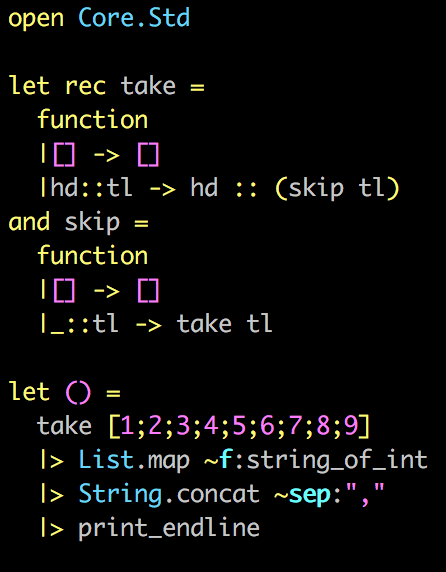
1. Create example.ml in some empty folder
2. ocamlbuild -use-ocamlfind -pkg core -r -tag thead example.byte
3. example.byte file will be generated which we can run now
OCaml
By acierto
OCaml
- 1,306



